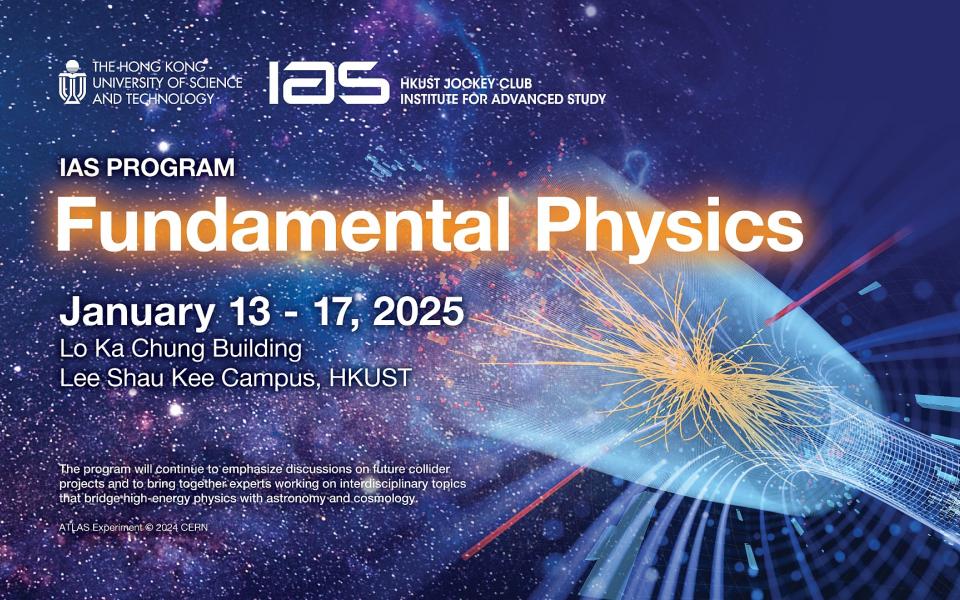IAS Program - Fundamental Physics (2025)
Supporting the below United Nations Sustainable Development Goals:支持以下聯合國可持續發展目標:支持以下联合国可持续发展目标:
Program Website
https://indico.cern.ch/e/fp2025
Overview
With the discovery of the Higgs boson at the Large Hadron Collider (LHC) in 2012, the primary objectives of high-energy physics have shifted towards the precise measurement of the Higgs properties and the exploration of new physics beyond the Standard Model. This pivotal discovery has opened new avenues for research aimed at resolving long-standing fundamental puzzles in physics, such as the naturalness problem, the nature of dark matter, the origin of cosmic baryon asymmetry, the origin of neutrino mass, etc.
To address these critical questions, there is a strong impetus for the construction of next-generation experimental facilities, including electron-positron (e+e-) colliders and high-energy proton-proton (pp) colliders, or even muon colliders. The e+e- collider is envisioned as a precision machine specifically designed for in-depth studies of Higgs physics, allowing researchers to measure its properties with unprecedented accuracy. In contrast, the high-energy scale colliders aim for the direct discovery of new physics, potentially revealing phenomena that could reshape our understanding of the universe.
In addition to these collider developments, the direct observation of the first gravitational wave event by the Laser Interferometer Gravitational-Wave Observatory in 2015 has ushered in a new era of astrophysical research, providing unique opportunities to investigate these fundamental puzzles. This groundbreaking event represents a significant milestone in the field of multi-messenger astronomy, where different types of astronomical signals—such as electromagnetic radiation and gravitational waves—are integrated to gain a more comprehensive understanding of cosmic events. Recent achievements in nanoHz gravitational wave detection using pulsar timing arrays have further propelled this trend. The distinct nature of these methodologies creates a powerful complementarity, enhancing our ability to tackle complex scientific questions.
At HKUST Jockey Club Institute for Advanced Study at HKUST, the program on high-energy physics commenced in 2015. In 2025, we will host a five-day conference from January 13 to 17 with an expanded theme. While the conference will continue to emphasize discussions on future collider projects, we also aim to bring together experts working on interdisciplinary topics that bridge high-energy physics with astronomy and cosmology. This approach seeks to foster enhanced communication and collaboration among various subcommunities, enriching the overall discourse and promoting innovative research directions. By integrating insights from different fields, we hope to advance our collective understanding of the fundamental questions that lie at the heart of modern physics.
Registration
Details will be available in due course.
